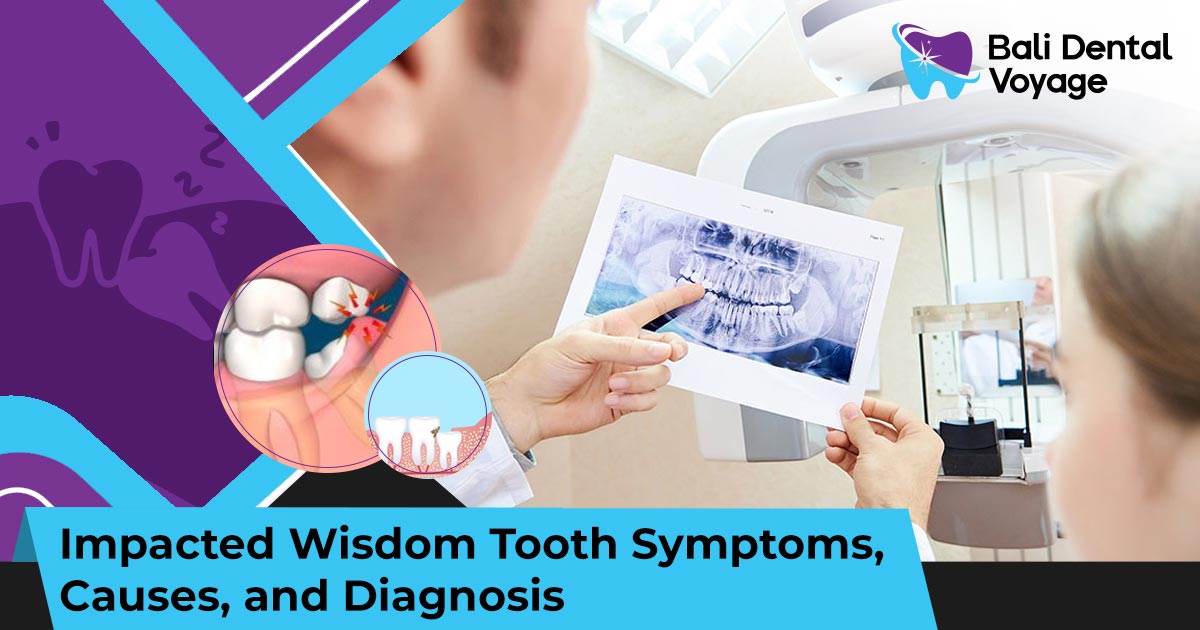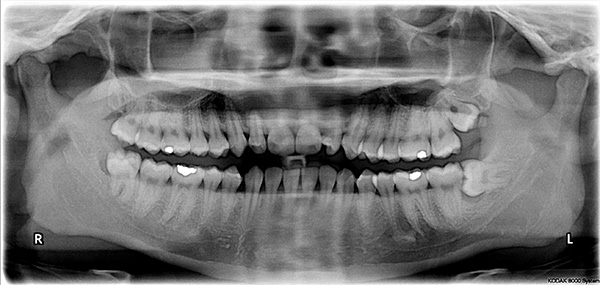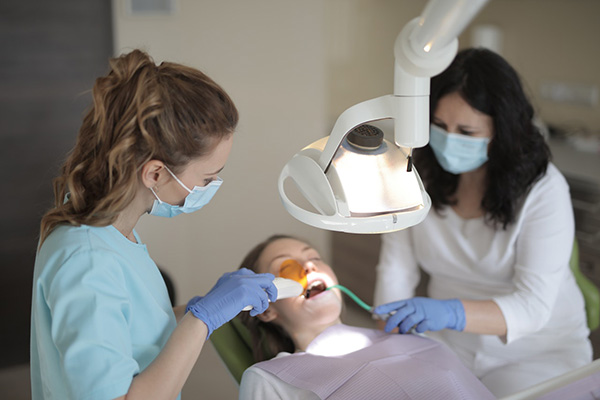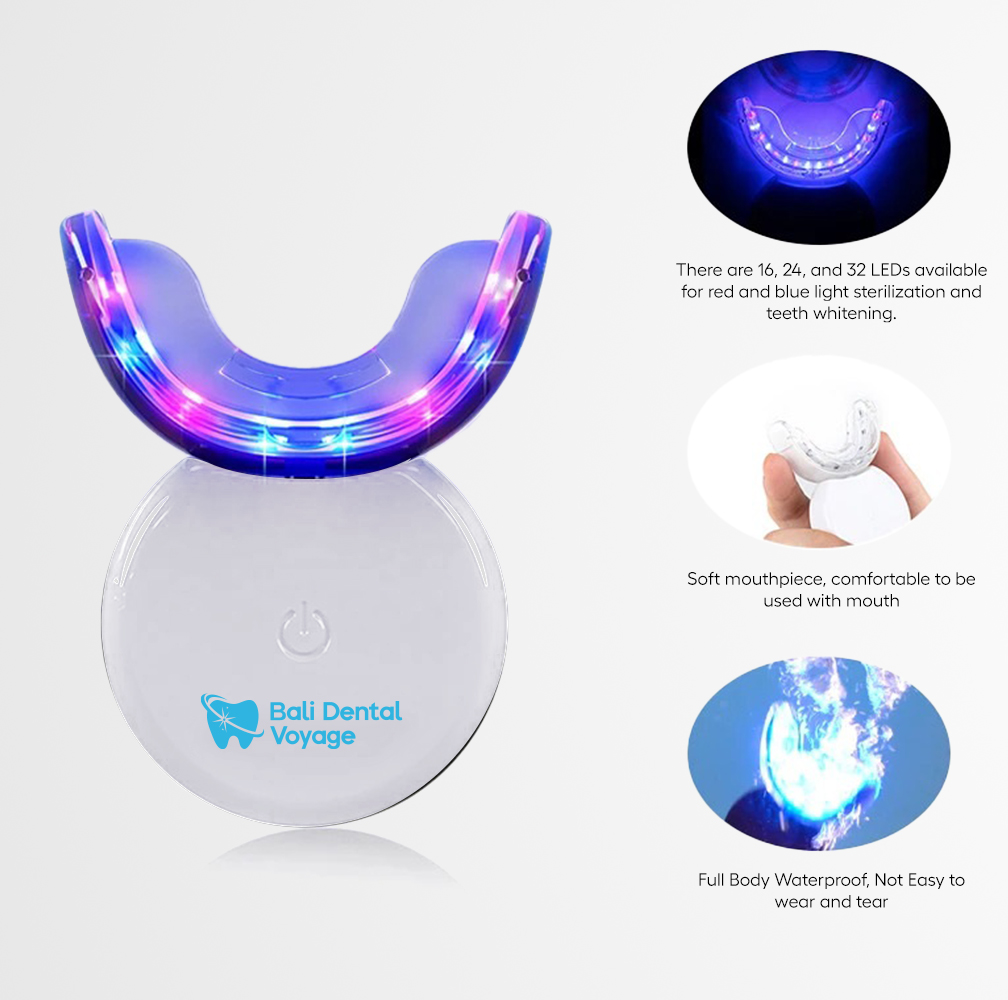
In this article, we will examine impacted wisdom teeth, including:
- What Is an Impacted Wisdom Tooth
- Symptoms of Impacted Wisdom Tooth
- Causes of Impacted Wisdom Tooth
- Diagnosis and Treatment Options
- Prevention and Management
- Jaw Pain Wisdom Teeth Infographic
Impacted wisdom teeth, also known as third molars, are teeth that do not fully emerge or grow into the correct position in the mouth. This can cause pain, discomfort, and a range of other symptoms. According to studies, it is estimated that around 85% of adults will develop impacted wisdom teeth at some point in their lives.
This common dental issue can occur due to a lack of space in the jaw, misalignment of the teeth, or genetics. Understanding the causes, symptoms, and treatment options for impacted wisdom teeth can help prevent complications and improve overall oral health.
Symptoms of Impacted Wisdom Tooth
An impacted wisdom tooth can cause a range of symptoms, including:
- Pain and discomfort in the back of the mouth
- Swelling and inflammation of the gums
- Difficulty opening the mouth
- Bad breath or a bad taste in the mouth
- Stiffness or pain in the jaw
One of the most common symptoms of an impacted wisdom tooth is pain and discomfort in the back of the mouth. This pain can be constant or intermittent and can range from mild to severe. It can also radiate to other parts of the face, such as the jaw or ear.
Another symptom of an impacted wisdom tooth is swelling and inflammation of the gums. This can be caused by an infection or the pressure of the impacted tooth against the gums. In some cases, the gums may appear red, swollen, and tender to the touch.
An impacted wisdom tooth can also cause difficulty opening the mouth, making it hard to speak or eat. This can be caused by the pressure of the impacted tooth against the jaw or by inflammation and swelling of the gums. Bad breath or a bad taste in the mouth is another symptom of an impacted wisdom tooth.
This can be caused by an infection or the accumulation of food particles around the impacted tooth. Lastly, stiffness or pain in the jaw can also be a symptom of an impacted wisdom tooth. This can be caused by the pressure of the impacted tooth against the jaw or by inflammation and swelling of the gums.
If you experience any of these symptoms, it is important to see a dentist as soon as possible. An early diagnosis and treatment can help prevent complications and improve overall oral health.
Causes of Impacted Wisdom Tooth

An impacted wisdom tooth can be caused by a variety of factors, including:
- Lack of space in the jaw for the teeth to emerge
- Misalignment of the teeth
- Genetics
One of the most common causes of an impacted wisdom tooth is a lack of space in the jaw. As we grow, our jaws may not be large enough to accommodate the additional set of molars, which can cause them to become impacted. This can be caused by crowding of the other teeth or small jaw size.
Misalignment of the teeth is another common cause of impacted wisdom teeth. The teeth may not be able to emerge correctly because they are angled in the wrong direction, causing them to become impacted. This can be caused by genetics, injury or trauma to the jaw, or other dental issues such as overcrowding.
Genetics can also play a role in the development of impacted wisdom teeth. Some people are predisposed to developing impacted wisdom teeth due to their genetic makeup. This means that if someone in your family has had an impacted wisdom tooth, you may be more likely to develop them as well.
It’s important to note that sometimes an impacted wisdom tooth may not cause any symptoms and may go unnoticed. Regular dental check-ups can help detect them early and prevent complications. In conclusion, an impacted wisdom tooth can be caused by a lack of space in the jaw, misalignment of the teeth, and genetics.
Understanding the causes of impacted wisdom teeth can help prevent complications and improve overall oral health.
Diagnosis and Treatment Options
Diagnosing and treating impacted wisdom teeth can be a complex process. X-rays and other imaging tests are typically used to determine the position and severity of the impacted teeth. These tests can help the dentist or oral surgeon identify any potential complications and determine the best course of treatment.
If the symptoms of impacted wisdom teeth are mild, conservative treatment options such as antibiotics and pain medication may be prescribed. Antibiotics can help to prevent or treat any infections that may have developed, while pain medication can help to manage any discomfort or pain. Surgical options, such as extraction or removal of the impacted teeth, are often recommended for more severe cases.
Extraction involves removing the impacted tooth from the socket, while removal of the impacted teeth involves cutting the tooth into smaller pieces for easier extraction. Both options are typically performed under local anesthesia or IV sedation. After the impacted teeth are removed, a patient will typically need to take it easy for a few days and follow a soft food diet while they heal.
Pain medication may be prescribed to manage any discomfort during the healing process. In conclusion, diagnosis and treatment of impacted wisdom teeth typically involve X-rays and other imaging tests, conservative treatment options such as antibiotics and pain medication, and surgical options such as extraction or removal of the impacted teeth. The best course of treatment will depend on the position and severity of the impacted teeth, as well as the overall health of the patient.
Prevention and Management

Preventing and managing impacted wisdom teeth can be done through regular dental check-ups, good oral hygiene practices, and lifestyle changes. Regular dental check-ups are crucial in detecting impacted wisdom teeth early. The earlier they are detected, the better the chances of preventing complications and preserving your oral health.
Your dentist or oral surgeon can take X-rays and other imaging tests to determine the position and severity of the impacted teeth and recommend appropriate treatment options. Good oral hygiene practices, such as brushing and flossing twice a day, can also help to reduce the risk of infection and inflammation. This can help to prevent the development of impacted wisdom teeth and manage any discomfort or pain that may be caused by them.
Lifestyle changes, such as avoiding hard or crunchy foods, can also be beneficial in preventing and managing impacted wisdom teeth. These foods can put pressure on the gums and teeth, exacerbating any discomfort or pain caused by the impacted wisdom teeth. In addition, if you are at a higher risk of developing impacted wisdom teeth, your dentist may recommend orthodontic treatment to create more space in your jaw or advise you to remove your wisdom teeth before they become impacted.
In conclusion, regular dental check-ups, good oral hygiene practices, and lifestyle changes can all help to prevent and manage impacted wisdom teeth. Early detection and treatment can help to preserve your oral health and prevent complications.
Jaw Pain Wisdom Teeth Infographic
Discover the ultimate guide to relieving jaw pain caused by wisdom teeth with our informative infographic. Take the first step towards a pain-free smile by exploring essential insights and solutions today!
Conclusion
In conclusion, impacted wisdom teeth can cause pain and discomfort, but with early detection and treatment, complications can be prevented. Regular dental check-ups and maintaining good oral hygiene practices are crucial in preventing impacted wisdom teeth.
By understanding the symptoms, causes, diagnosis, treatment options and prevention methods, you can take control of your oral health and ensure that any impactions in your wisdom teeth are effectively managed. It’s important to be proactive about your oral health and to seek the advice of a dentist or oral surgeon if you suspect that you may have impacted wisdom teeth.
Impacted Wisdom Teeth Treatment in Bali
Don’t let impacted wisdom teeth cause you pain and discomfort any longer. At Bali Dental Voyage, our experienced Bali dentist and oral surgeons are ready to provide you with the best treatment options and care for your impacted wisdom teeth.
Take advantage of our state-of-the-art facilities and affordable prices for General Dentistry Services Bali, and make your next dental holiday a comfortable and worry-free experience. Book your appointment with us today and say goodbye to the impacted wisdom teeth.




